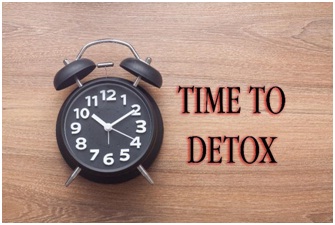Kenosha, Wisconsin Drug and Alcohol Rehab Treatment
Drug rehab centers in Kenosha County provide rehab and recovery treatment for the many drug addicts who struggle with widespread drug use. Many of the drug rehab centers offer differing approaches to the recovery process. Some offer spiritual approaches to recovery, while others focus on the medical aspect of dealing with an addiction.
Choosing the best drug addiction treatment program in Kenosha County means narrowing down the choices to those that fit your particular recovery needs. Make certain that the facility chosen offers a recovery program that has a successful history of treating your specific addiction. Keep in mind that the best rehab facility is the one you feel most comfortable for helping you with your drug rehab in Kenosha County.
When choosing the best drug rehab center, it's also important to determine if you want inpatient drug rehab in Kenosha County or outpatient drug rehab in Kenosha County. Most programs begin at about 28 days to give patients enough time to get through the detox process followed by counseling. This timeframe may be insufficient to completely battle the addiction, so a facility that has extendable programs is generally preferred because it allows addicts to work at their own pace toward recovery.
Kenosha, Wisconsin Alcohol Rehab Centers, and Drug Centers
Choosing a recovery program to join can help to factor in your resources and your living situation. You'll also need to think about the different program types and how each might meet your needs. There are three primary types of treatment programs to help with recovery from substance misuse disorder. Each type of program has its benefits and drawbacks, so carefully consider what each type can offer.

Residential Rehab Treatment Programs
A residential treatment program is an appropriate choice for individuals who want to disengage from their everyday surroundings. In this type of treatment setting, you can focus entirely on finding the underlying cause of your issues and substance use. In this program type, you live at the treatment facility full-time. The programs are discipline and structured, focusing on self-awareness and behavioral changes to help you cope with your stress and personal triggers. A residential treatment program may include yoga, meditation, individual, group, and family therapy, biofeedback and neurofeedback, art therapy, and physical exercise. If there are co-occurring mental issues, residential treatment will take care of these too. Your needs are met from breakfast to bedtime, so you can reflect on your past and plan a better future with full-time guidance from medical professionals.
Outpatient Treatment Programs
Outpatient rehab is helpful for individuals who are fresh out of detox or inpatient rehab. In this kind of recovery program, your time in therapy exams and classes is limited. You may keep going to work or go to classes if you have to because you attend classes for several hours a week rather than undergoing immersive treatment as in residential treatment. Individuals with limited resources often go for this recovery method, integrating their treatment with their daily lives. Other people need to be close to dependents, including children, older parents, or pets, so they choose to remain, outpatients, as they get substance misuse treatment.
Partial Hospitalization Programs
Partial hospitalization programs are crossed types of recovery treatment that allow people to attend residential-style recovery programs while remaining in an outpatient status. The inpatient program's daily discipline is in force, so you're held accountable for therapy just as in a residential program. You're up early and spend all day in sessions or taking some breaks between sessions. However, the patient can stay in your home at night with your loved ones and participate in household activities in your own time.
With some substance misuse cases, you can expect to experience withdrawals if you suddenly stop using them. Stopping alcohol, heroin, benzodiazepines, and many other substances can cause painful, debilitating symptoms. However, ridding your body of the substances, you're using before is vital for meaningful recovery. Dedicated detoxification (detox) program can be the safest way of handling your symptoms. Healthcare professionals will oversee your recovery and give you treatments and therapies to help gradually ease you off drugs or alcohol. Expect detox to take anywhere from two days to a week, depending on the substances you've been using.
Detox Centers
With some types of substance misuse, you will most likely experience withdrawals if you suddenly stop using them. Quitting alcohol, heroin, benzodiazepines, and many other substances can lead to painful, debilitating symptoms. However, you must rid your body of the substances you're using for meaningful recovery to occur. A dedicated detoxification program can be the safest way to handle your symptoms. Health care professionals watch over you and give you treatments and therapies to help ease you off drugs or alcohol.
Recovery Meetings Near You
Many individuals in recovery take great solace in recovery meetings, including individuals who recently completed a rehab program. It helps to talk about your struggles and successes with people who know how hard it is to walk away from temptation and forgive yourself. Organized meetings are safe places where you can find like-minded, non-judgmental people to support you throughout your recovery journey. Make a note and schedule meetings near you, so you have a safe place to go when you need encouragement and fellowship.






